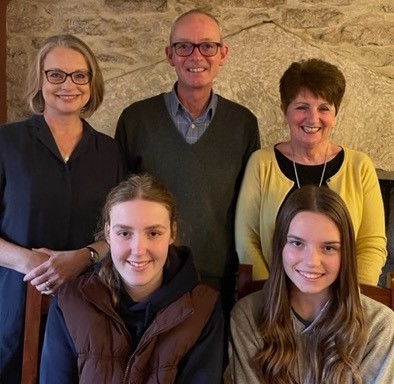On the 11th October CAFOD campaigners delivered ‘Salina’s letter’ to the World Bank’s UK offices. The letter was written by Salina, a small-holder farmer from Bangladesh who is fighting to keep control of her own seeds. As part of CAFOD’s Fix the Food System campaign, over 70,000 Catholics from across England and Wales, including parishioners from across our Diocese had signed the letter in solidarity with Salina to urge the World Bank to stop supporting policies that limit small farmers’ choice over which seeds they can use.
There are multiple ways to get involved with supporting CAFOD’s work. A group of CAFOD volunteers in the parish of Our Lady Star of the Sea, Weymouth and Portland, came up with a wonderful idea to create a zero waste cookbook.
Here, we are delighted to share some thoughts from Nicholas Toomey, one of the CAFOD volunteers in the parish, about the process behind it.
How did the idea for a cookbook come about?
The truth is we really struggled to bring the CAFOD Fix the Food System booklet ‘alive’ and to make it accessible to our parish. We wanted to broadcast the message, but only if it would help change behaviour for a wide audience. The cookbook idea came from our two young CAFOD members, Angelina (Year 12) and Merridith (Year 10). They wanted to develop messaging that was accessible to both a young and older audience. We also wanted parishioners to take personal ownership of the Fix the Food System issues and challenges and to become actively involved in becoming part of the solution. This led to the recipe book idea. Parishioners would contribute ‘zero food waste recipes’ and we would accompany them with the Fix the Food System messaging.
Why do you think being educated about the global food system is important for young people today?
Young people are our future, but more than that, we have to empower them today with the confidence that they can make a difference. Young people have tremendous insight and understanding, and they have the energy and empathy to make a positive difference.
What would your advice be to anyone who wants to undertake a similar project?
Go for it! Our recipe book has already raised more than £600 in our parish for CAFOD and, more importantly, it has raised awareness in more than 150 households across Weymouth and Portland. The key is to get young parishioners engaged and this is partly to do with succession planning. We helped them to refine their concept, then we ‘oldies’ cracked on with the hard slog of bringing this to fruition, checking in with the whole team at regular intervals to make sure we were delivering the original concept.
Which is your favourite recipe from the book?
The recipes are all delicious and reflect the wonderfully varied nationalities in our parish. Even better, there is a recipe for every day of the week and each is accompanied by CAFOD messaging and a wonderful prayer.
What would you say one simple and sustainable change is that we can all make with regards to fixing the food system?
Aim for zero cooked food waste in your household eg, weigh your rice and pasta, cook just what you need (usually 75g per person). Please refer to the back cover of our recipe book for lots of food-saving/leftovers top tips.
Warmest thanks to Anne and Nicholas Toomey and the CAFOD volunteers in Weymouth and Portland for sharing this inspiring story with us.
You can read the delicious recipes here: https://www.weymouthandportlandrcchurch.org.uk/cafod

